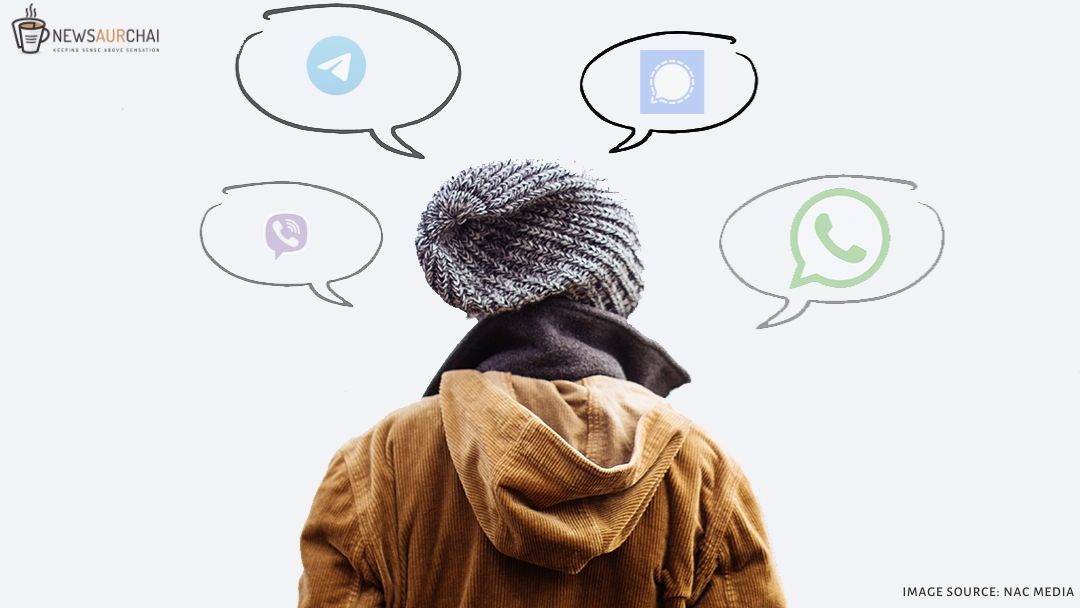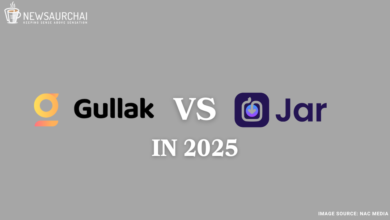Whatsapp’s Privacy Concerns And Alternatives Emerging In Limelight

Recently, WhatsApp has revised its privacy policy, which has brought concerns regarding the data sharing with Facebook and its other partner companies. The new privacy policy has caused a lot of people to consider using alternatives to WhatsApp.
On January 9 2021, the WhatsApp Head Will Cathcart tweeted that this policy is purely concerned with Business communication, rather than private. With effect from February 8, 2021, the new terms of service will be applied. Users have started exploring other applications due to the fear of misuse of their data and a virtual protest against Facebook. For example, Signal App has seen a massive rise in its popularity and has also topped the charts on iOS, with an immense increase in downloads in India. Another popular alternative for WhatsApp is Telegram, which is gaining new users despite not being end-to-end encrypted. Viber is another app which is an alternative, which was once popular before WhatsApp dominated.
Since the update, there have been tons of conversation on WhatsApp sharing user information with Facebook. Many Twitter users are coaxing each other into getting off WhatsApp and shifting to other encrypted messengers like Signal and Telegram. Tesla, SpaceX and Boring Company CEO Elon Musk joined the conversation too, asking people to go away WhatsApp. Late last night, he posted on Twitter, “Use Signal”.
Features Of The Alternative Apps
Signal
Signal has become the best alternative to WhatsApp, in terms of the security features and the fact that a non-profit firm tunes it. Regarding the security features, it has an end-to-end encryption-based protocol. It is built by an American cryptographer Moxie Marlinspike, who is also the CEO. No third party or even the firm Signal can read your messages. Signal protocol is open-source, which is another advantage. Signal doesn’t support third-party backups either. All data remains stored on the device, and if you lose access to the device and sign in on Signal through another phone, your previous chat history is lost.
The App can be used across multiple platforms like Android, iOS, iPad, Mac etc. It is a user-friendly app; it shows the contacts with a Signal account, making it easier for people to connect. Signal App is entirely free, run by non-profit. Former WhatsApp founder Brian Acton helped develop Signal Foundation, and Marlinspike contributed $5o million for funding the App. It does not have any advertisements and does not sell your data or monetize it.
The App supports group conversations with a maximum of 150 members and has recently added the feature of group video calls. The option of disappearing messages is also available for each chat. The quality of the screen lock is also present. There is also a feature of Message Requests which gives the user an option to block, delete or accept a message from an unknown person.
Signal’s key priority is its user’s privacy, and hence the App doesn’t collect any user data, as per the privacy labels provided on the App Store. This App only stores your telephone number or contact information.
Telegram
Telegram is another popular alternative to WhatsApp. It will not be difficult for a user to switch to this App as it is straightforward. There are a few telegram features that are not even present on WhatsApp. Telegram is encrypted, and it’s open-source, though within the past issues are raised about its encryption. While regular chats aren’t end-to-end encrypted, as they’re on Signal and WhatsApp, if you begin a secret chat on Telegram, it’s secured and doesn’t get saved. You can also set a timer to delete these secret chat messages. To protect the information not covered by end-to-end encryption, the corporate uses a distributed infrastructure.
Telegram is free. It’s an ad-free service for now. But Telegram recently announced its monetization plans because the company says the project of this “size needs a minimum of a couple of hundred million dollars per annum to stay going.” They also confirmed that the advertisement interface would be user-friendly, and it’ll respect the user’s privacy. It is prevalent for groups and allows quite 200,000 users during a group. It also supports audio and video calls. Interestingly all video calls are end-to-end encrypted. Disappearing messages are a part of the critical Chat feature, and you can set a timer for messages. The time range provided is one second to at least one week.
The best part about Telegram is it’s a cloud service, which is why you don’t have to worry about backing up the chats to other servers to revive them on a replacement device. You can access your data from any device because the data is synchronized across all the registered devices through cloud-based service.
Telegram supports Picture-in-Picture mode, suggesting that you merely can video call while using other apps like Instagram. On Telegram, an admin can set different permissions for each user. Telegram offers cool and fun animated stickers, which you’ll not find on the other messaging App. to make an account, you only got to provide your mobile number and a few necessary information. The data stored in Telegram includes name, phone number, contacts, and user ID.
Viber
Viber is another privacy messenger app, which supports end-to-end encryption. All kinds of messages, photos, videos, voice and video calls and group chats are encrypted. The corporate says that everybody will need to confirm that they’re using the newest version of Viber to urge maximum protection.
Like WhatsApp, the chats get backed up in Google Drive, from where you’ll restore your chats. Viber says that when you upload your conversations to Google, it won’t be liable for your data protection and privacy will depend upon Google’s policy. Viber is often used across platforms from Android, iOS, and Windows also. Like all the opposite apps, Viber is additionally free. However, you’ll witness a couple of ads within the popular messaging App. It supports Group features for up to 250 members. Similar to Telegram, there is a secret chat option here too.
You’ll set the timer, and screenshot/forwarding feature is disabled. The time is often set by you starting from one second to at least one week. The screen lock feature is out there, but not for the mobile version. Viber collects location and device ID identifiers. It also gathers device ID identifiers. It contains phone numbers, user ID, product interaction, purchase history, other contact information like email ID, name, and contacts.
Is the shift to another app necessary?
The latest clarification brings in what looks like the differentiation between “messages with friends or family” and “messages with a business”. It says the new privacy policy pertains to the latter alone and therefore the former remains unchanged. WhatsApp’s policy states that there’s no reason to move out of WhatsApp if you use it primarily to speak with friends and family. However, there seems to be a departure happening. Signal is topping the charts on Apple’s App Store, and it appears to be driven by downloads from India, consistent with a tweet from the corporate.
WhatsApp’s most significant advantage is that it’s ubiquitous and everybody on your contact list is using it. On Signal, even now, you’ve got to travel trying to find users to talk. But the App will add up if a whole group decides to manoeuvre conversations there. If you’re thinking of quitting WhatsApp but continuing to use Facebook products like Messenger, Instagram and Facebook itself, then the exercise is going to be pointless.





